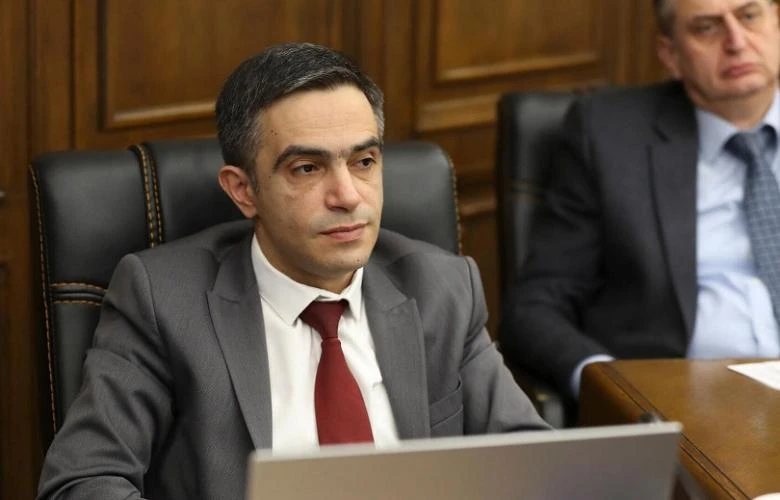Work 7 hours a day instead of 8, 35 hours a week instead of 40, while keeping the salary.
The RA Ministry of Labor and Social Affairs presented the project for public discussion.
The rationale states that the technological changes that took place after the introduction of the 8-hour work day model contributed to the automation of many processes. Examples include France, Sweden, Norway, Iceland and other countries where flexible working hours have already been introduced, reducing working hours.
The working schedule, for example, has not worked in France since the beginning of the 2000s, in Sweden since 2015, in Iceland and Norway since the end of the 20th century.
Deputy Minister of Labor and Social Affairs Ruben Sargsyan
of "Haykakan Zhamanak".In a conversation with According to him, people will have more free time. "It will help them devote more time to their personal life and solve social problems. It will increase the quality of people's ability to work, the time for rest will increase, they will spend more time with their families, stress, tension and overfatigue will decrease. We have an ideology of 8s. We work for 8 hours, rest for 8 hours, sleep for 8 hours. It comes from the 1800s, when the economic revolutions took place."
However, now, if we compare the beginning of 1900 and the year 2025, then, according to Sargsyan, there is a big jump in the economy, technologies have developed, there is an increase in productivity, therefore the flexibility of work has become an important component.
"With that in mind, summarizing the various meetings and discussions, taking into account the two major strategic plans developed by the ministry, among which are the development of demographics and the employment strategy, it was emphasized that the basis of them is the development of human capital, for which steps should be developed," he says. is he
At the same time, the deputy minister emphasizes that this proposal is still an idea, and if accepted, it will apply to both the private and public sectors. The latter notes that the two target groups of the project are the employee and the business community.
"There are representatives of the business sector who have already switched to that schedule, or have developed other flexibility mechanisms. There are businesses that have observations. We have listened to everyone's suggestions, we have also listened to the suggestions and positive positions of the trade unions. Overall, the project has 90 percent positive views. In other words, after discussing those proposals, we will understand and decide what steps we will take. This is the idea that we brought forward while discussing," he elaborates.
Ruber Sargsyan emphasizes the preservation of wages along with the reduction of working hours. Therefore, there should not be a concern and a question here: what will those workers who work under a transactional contract and are paid according to working hours, do? According to his assurance, the hours will be changed, but there will be no right to reduce the salary.
Whether the employers will keep this happy decision for the employee, the Deputy Minister emphasizes, the Health and Labor Inspection Authority will carry out the supervisory services, in case of violations, it will decide on the implementation of further steps against the given employer. "In addition, people have the right to use various tools if their rights are violated. they can apply to the inspection body, the judicial system. Practice shows that court decisions in labor disputes are more in favor of citizens."
The project will not violate the rights of employers in any way, Sargsyan assures. On the contrary, according to his conviction, if the project is accepted, new jobs will be created in both the public and private sector, and the posts will increase, which may lead to the increase of expenses and incomes in the budgets of state and local self-government bodies, regarding which, however, it is not possible to give a clear assessment.
The latter notes that the ministry implements all reforms by studying international experience in developed countries.
The ministry is now discussing the project in the first stage, and then it will be clear what kind of changes are needed. In order to be accepted, it must be fully prepared, submitted to the Government, and then put to a vote in the National Assembly.
There are many positive comments about the project on the unified website for publication of draft legal acts - e-draft. For example, one of the citizens submitted a proposal regarding working days. In many countries of the ILO, the 4-day working regime is in place today, so that the worker can spend the rest of the week with his family.
Another citizen also noticed. "It is simply a wonderful initiative, based on the fact that living in this really stressful environment, devoting an hour to a more pleasant activity will be beneficial both from the point of view of health and being more socially active, providing for family and children."
Some have expressed fear that private organizations will try to bypass the project.
At this moment
In E-draftthe project has 966 votes in favor and 43 against.


